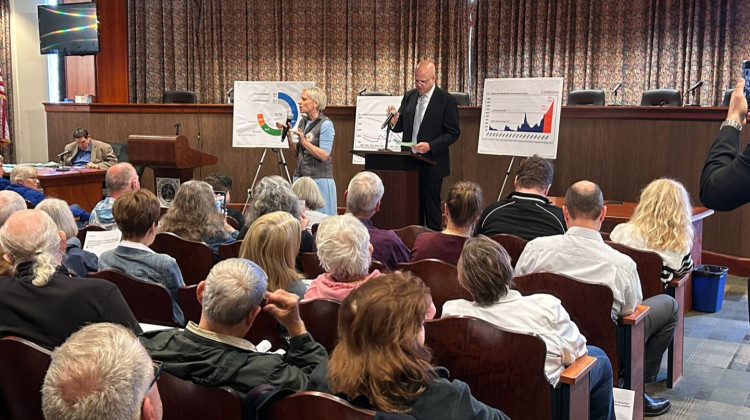
Ways carbon dioxide can be sequestered on land and underground.
LeJean Hardin and Jamie Payne/Wikimedia CommonsA bill working its way through the state Senate would make it easier for companies to store carbon dioxide underground. Some tout it as a way to help address climate change because it keeps the greenhouse gas out of the air. But a state activist group says it could do the opposite.
Under the bill authored by Sen. Jon Ford (R-Terre Haute) companies would only have to get consent from owners of a little more than half the land to inject CO2 into the ground, if they meet certain conditions.
Kerwin Olson is the executive director of the Citizens Action Coalition. He says letting companies store CO2 only encourages them to produce more of it instead of moving to renewables like wind and solar.
“What we should be doing is advancing carbon-free, carbon-neutral sources,” Olson says.
Though more research needs to be done, some scientists say CO2 injected underground could cause earthquakes or pollute drinking water. Once CO2 has been stored underground, it needs to be monitored to make sure it doesn't migrate to other areas.
The company Wabash Valley Resources LLC hopes the bill will help it turn a coal gasification plant in Terre Haute into an ammonia production facility, and store its byproduct – carbon dioxide.
Managing partner Nalin Gupta says that ammonia could be used in cheap fertilizer for Indiana’s farmers — but they can’t do it without this legislation.
“It will make it financially very close to impossible for us to do that,” he says.
Gupta says the cost of shipping in ammonia for fertilizer is very high and this would be one of the few such production plants east of the Mississippi River.
The bill would also make it so the state owns all CO2 stored underground and assumes responsibility for it once an underground facility closes.
Indiana Environmental reporting is supported by the Environmental Resilience Institute, an Indiana University Grand Challenge project developing Indiana-specific projections and informed responses to problems of environmental change.
 DONATE
DONATE







 Support WFYI. We can't do it without you.
Support WFYI. We can't do it without you.